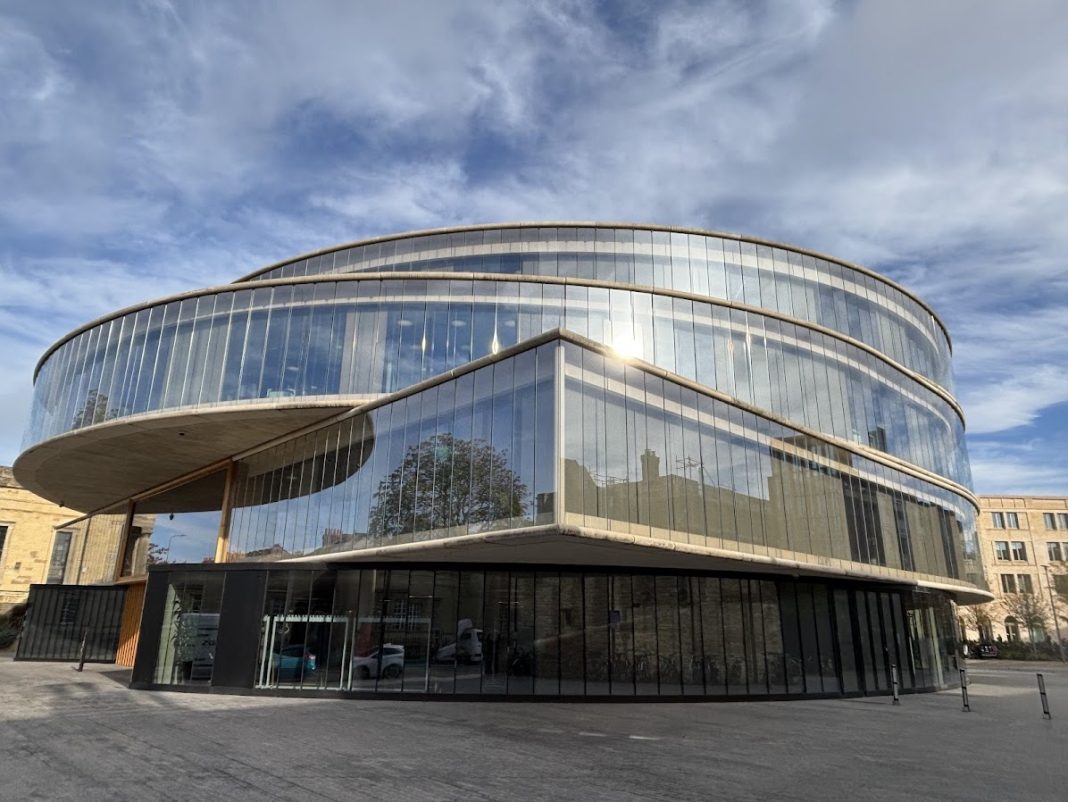Katrina Mulligan, Head of National Security Partnerships at OpenAI, spoke at the Blavatnik School of Government last week about the relationship between artificial intelligence (AI) and global security, warning that “everything you know about AI is already out of date”.
Before joining OpenAI, Mulligan held numerous senior roles in the US government and launched the travelling press corps for Barack Obama’s 2008 presidential campaign. She explained that after years in public service, she realised that “sometimes smart and well-intentioned people don’t always make the right decisions”, motivating her to join OpenAI and work on the frontlines of a technology she believes will shape some of the world’s most consequential choices.
Mulligan described OpenAI’s commitment to developing “technology for good” and discussed the frameworks the company has built to determine when and how AI should be deployed. She highlighted ChatGPT’s rapid growth, reaching 100 million users within two months of its launch, as evidence of how quickly the technology has entered everyday life.
To counter misconceptions, she noted that many common beliefs about AI, including views that it’s “not that good”, a “black box”, or “too risky”, are already outdated. Comparing AI to electricity, she said that while the technology may still appear dangerous or unpredictable, it will eventually become as essential to modern life as power itself.
Mulligan traced the evolution of OpenAI’s models, explaining that earlier versions performed at a “junior high school level” while current reasoning models now exceed PhD-level understanding. These newer systems “take time to think,” shifting the focus of scaling from data and computing power to deliberation and reasoning.
Encouraging the audience to experiment directly with AI tools, she remarked: “You do not get fit by reading about working out.”
She observed a growing disparity between generations and regions in how AI is perceived and used. People over 40, she said, tend to use ChatGPT as a replacement for search engines, while those under 30 increasingly rely on it as an operating system for daily life. Meanwhile, Western countries are far more focused on risk and regulation, whereas China and many developing nations prioritise rapid adoption.
When asked what concerns her most, Mulligan identified “mass surveillance”, “removing humans from decision-making”, and “weapon development”. She stressed that “no one company should dominate on this technology” and that international cooperation will be vital, since every country has “land, energy, and power” to contribute to the global AI ecosystem.
Reflecting on the accelerating pace of technological progress, Mulligan remarked that “the world is looking at a calendar, OpenAI is looking at a watch”. Despite her two decades in national security, she said her belief in “the good of humanity” continues to guide her work in ensuring AI’s development remains responsible and inclusive.


